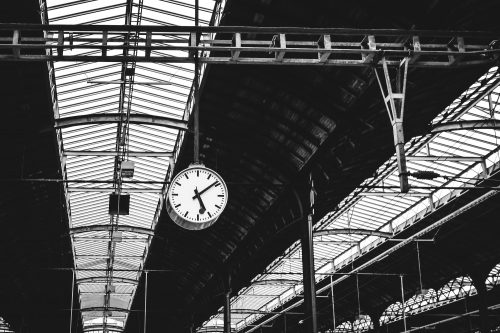I came home one day and it was all gone.
If my 28-year-old self would’ve walked into the home of my 30 year-old self, he would have thought he’d been robbed.
Where did all my stuff go? he’d’ve thought. I worked so hard to buy all that stuff, and now it’s all gone!
My 28-year-old self would have panicked when he noticed that over 90% his stuff was no longer there. It was gone. Vanished. Poof! He had given so much meaning to all that stuff—the car, the clothes, the gadgets, the trappings of a consumer culture that he was a part of—but that stuff didn’t have any real meaning.
He was part of the disease, not the cure.
There were so many lessons he learned in those two years. Remember when Fight Club’s Tyler Durden told us we are not our khakis? Many of my learned lessons were similar to that quote.
I am not my stuff.
I am not my jeans.
I am not my television.
I am not my car.
I am not my bank account.
I am not my vocation.
I am so much more. I am who I am on the inside. I do amazing things, yet I am imperfect. I accomplish incredible feats, yet I make mistakes. I am a caring person, yet I forget about important things sometimes. I am proud of who I am, yet I make bad decisions at times. I am a human being, a mixed bag. I am just like you.
And I’m still learning…
Stuff is just stuff.
Possessions can be replaced.
You cannot.
We cannot purchase a meaningful life.
We can only live it.
One day at a time.
But of course I wasn’t robbed. It didn’t happen over night. I didn’t wake up one day and get rid of the vast majority of my stuff.
It took time.
It started with a pair of khakis that I didn’t wear, grew into an entire basement of clothes that no longer fit, and expanded from there, one item at a time.
Once I got rid of one thing, I started questioning other things in my life, asking myself better questions to get to the root of why I had all this stuff that I didn’t need—or even want most of the time.
Why did I buy this?
What could I have used that money for instead?
Do I really need this?
What would happen if I didn’t have this anymore?
Could I replace this if I really needed to?
Can someone else use this more than I can?
Does this add value to my life?
I kept questioning my possessions and getting rid of more and more stuff. A carload of clothes here, a piece of furniture there, one thing at a time, donating the majority of it.
And then…
I came home one day last week, walked in, and realized that I didn’t own much stuff anymore. I realized I could have less stuff and still be happy, still live a meaningful life.
I will continue to question my stuff. Do I need this couch even though I rarely sit on it? Do I need these jeans when I have two other pairs? Do I need this watch when my phone has a clock on it? Do I need this, this, or that?
No, I don’t think physical possessions are inherently evil or wrong; I just think we give too much meaning to our stuff—the stuff that doesn’t matter. Every dollar we spend is a dollar we have to work for, which takes our time away from us. Our precious time. Our time is our freedom. Thus, our stuff has the potential to rob us of our freedom.
So maybe I was robbed.
Robbed by my stuff.
Robbed of my freedom.
No more, though.
I am in control now.
I am aware that I am not my stuff.

